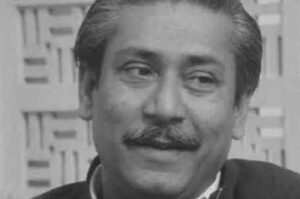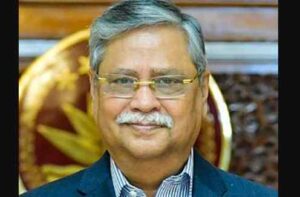Since its independence in 1971, Bangladesh has seen many leaders guide the nation. Here is a list of all the presidents who have served Bangladesh, arranged in order along with their years in office.
READ ALSO: Presidents That Have Ruled Djibouti Till Date
List of Presidents of Bangladesh
| No. | Name | Years in Office |
|---|---|---|
| 1 | Sheikh Mujibur Rahman | 1971 - 1975 |
| 2 | Khondaker Mostaq Ahmad | Aug 1975 - Nov 1975 |
| 3 | Abu Sadat Mohammad Sayem | Nov 1975 - Apr 1977 |
| 4 | Ziaur Rahman | 1977 - 1981 |
| 5 | Abdus Sattar | 1981 - 1982 |
| 6 | Hossain Mohammad Ershad | 1983 - 1990 |
| 7 | Shahabuddin Ahmed | 1990 - 1991 |
| 8 | Abdur Rahman Biswas | 1991 - 1996 |
| 9 | Justice Shahabuddin Ahmed | 1996 - 2001 |
| 10 | A. Q. M. Badruddoza Chowdhury | 2001 - 2002 |
| 11 | Iajuddin Ahmed | 2002 - 2009 |
| 12 | Zillur Rahman | 2009 - 2013 |
| 13 | Abdul Hamid | 2013 - Present |
Bangladesh’s First President: Sheikh Mujibur Rahman

Sheikh Mujibur Rahman was the founding father and first president of Bangladesh. He played a crucial role in leading the country to independence in 1971.
Mujib, as he is commonly known, was instrumental in uniting the nation during its early years. He introduced socialist policies to rebuild the country’s infrastructure, education, and healthcare systems.
Key Achievements:
- Leader of Independence: Mujib’s leadership during the Liberation War earned him great respect and the title “Bangabandhu,” meaning “Friend of Bengal.”
- Rebuilding Efforts: His government focused on reconstructing the country after the war.
Challenges:
- Authoritarian Tendencies: In 1975, Mujib declared a one-party state, which led to dissatisfaction and criticism.
- Economic Struggles: Despite his efforts, the economy struggled to recover, leading to widespread poverty and unrest.
Mujibur Rahman’s presidency ended tragically when he was assassinated during a military coup in 1975.
READ ALSO: Presidents That Have Ruled Somalia Till Date
The Current President of Bangladesh: Mohammad Shahabuddin

Mohammad Shahabuddin, the current president of Bangladesh, assumed office on April 24, 2023. Before becoming president, he had a notable career in law, serving as a judge and a member of the Anti-Corruption Commission. His background in law and governance has shaped his approach to leadership.
Key Achievements:
- Anti-Corruption Efforts: Shahabuddin has continued his commitment to fighting corruption, supporting initiatives to enhance transparency and accountability in government institutions.
- Judicial Reforms: He has advocated for modernizing the judiciary, aiming to reduce case backlogs and ensure quicker, fairer justice.
- Strengthening Diplomatic Ties: His administration has focused on improving Bangladesh’s international relations, particularly within South Asia and Southeast Asia.
Challenges:
- Limited Political Influence: As a largely ceremonial figure, his direct impact on policy is limited, reducing his ability to address key national issues.
- Human Rights Concerns: His tenure has faced criticism for not adequately addressing ongoing human rights challenges, particularly regarding freedom of speech.
- Economic Inequality: While the economy has grown, economic disparities remain, with some critics calling for more inclusive policies to benefit all citizens.
Shahabuddin’s presidency reflects his legal background and commitment to governance, though it is constrained by the ceremonial nature of the role.
READ ALSO: Presidents That Have Ruled Seychelles Till Date
The Role of Vice President in Bangladesh
Currently, Bangladesh does not have a specific position for a vice president. The Speaker of the National Parliament can assume presidential duties in the event of a vacancy, but this role is not the same as a vice president.
Conclusion
Bangladesh’s presidency reflects the country’s complex and evolving political landscape. From Sheikh Mujibur Rahman’s revolutionary leadership to Abdul Hamid’s steady hand, each president has played a role in shaping Bangladesh’s journey. Despite the challenges, Bangladesh continues to grow and progress as a nation.
